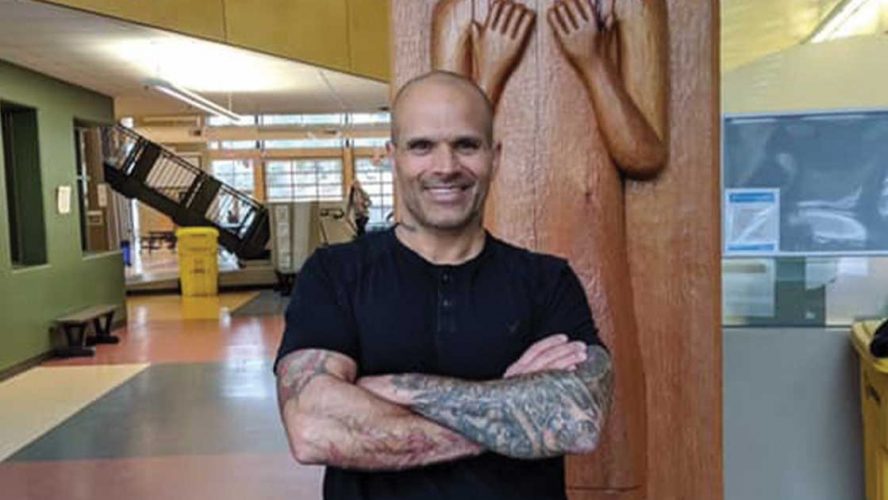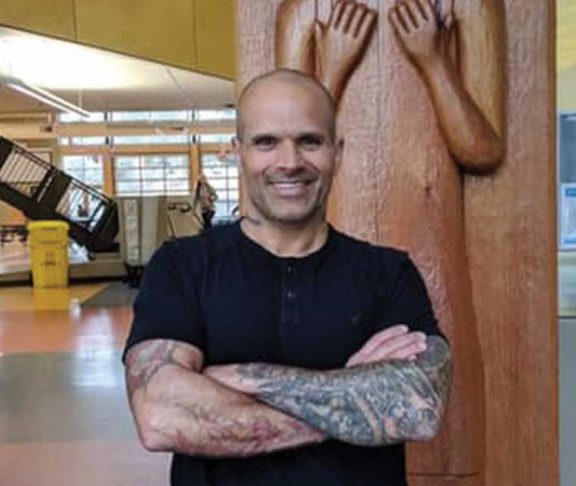In the upcoming documentary Toxic, Guy Felicella shares his experience of overcoming addiction.
Mediaplanet: When did you start abusing drugs and when did you decide to seek treatment?
Guy Felicella: I started at the age of 12. I was impacted by a lot of verbal — and often physical — abuse that crippled me as a human being. It led to anxiety, struggling with depression and self-hatred. Eventually, the culture which existed in the community of Richmond where I was living drove me to venture to the Downtown East Side from a very early age. It wasn’t long before I was in and out of juvenile detention centres and I found myself homeless on the streets of Vancouver.
As a youth, I did manage to have some successful years, but the abuse factor kept dragging me into heavier substances and eventually I found myself continually homeless in the Downtown East Side for over 20 years. During that time I was present for three public health crises — HIV/AIDS, the introduction of opioids, and the fentanyl crisis where I was brought back to life six times. I’ve had five different bone infections — one so severe in my back that I had to learn how to walk again.
By the end of it — as the doctor said — I really was a medical miracle to have survived addiction with repeated use and all those experiences.
When did you decide to seek treatment?
GF I knew that if I didn’t leave the East Side, I would never get out. I was so entrenched for so long. To actually get better I went to an opioid recovery treatment program. During the first couple of months they focused on having me deal with stuff that I was coping with from the past.
Who did you turn to for support?
I met the right people along the way. I wasn’t afraid to ask for help and my wife played a major role in my recovery. My friends and my co-workers knew me in addiction — and now they know me as a colleague. They have all been a major reason for how I got to where I am today and for that I am truly grateful. They continue to support me through the work that I do and through recovery.
Addiction isolates people and society isolates people more by pointing fingers.
What has been the biggest learning curve for you?
I learned more from my failures than I did from my successes. It is so hard to get out of an entrenched lifestyle. I wanted to change my life to get away from addiction and to be able to live and apply self-discipline.
Where is opioid use most prevalent, why do you think this is?
It’s now and everywhere. It goes back to the stigma and culture that exists in pushing people to an area of isolation. You don’t have to be in the Downtown East Side to be isolated — you can be in your penthouse or your bathtub. That’s addiction. It’s everywhere. The culture of judgement and stigma is really driving people to not reach out and change it. We just created the stigma. Look at alcohol — it kills more people than anything else and it’s legal. To decriminalize doesn’t mean it’s legal either. It doesn’t mean you can sell drugs; it just means you can address it differently.
Why might a substance user not seek out treatment?
It goes back to the stigma. I’ve called many people who are seeking treatment, but they’re afraid to do so because of their families, friends, and jobs. I always tell those with these concerns, “If you continue to use alone you’re going to end up losing your life.” Their response usually revolves around the idea of relief from dealing with the emotional pain in their lives. There’s a lot of shame attached to substance use in itself. That’s where I go back to speaking up for decriminalization, so professionals won’t be judged for being substance users. Addiction isolates people and society isolates people more by pointing fingers.


